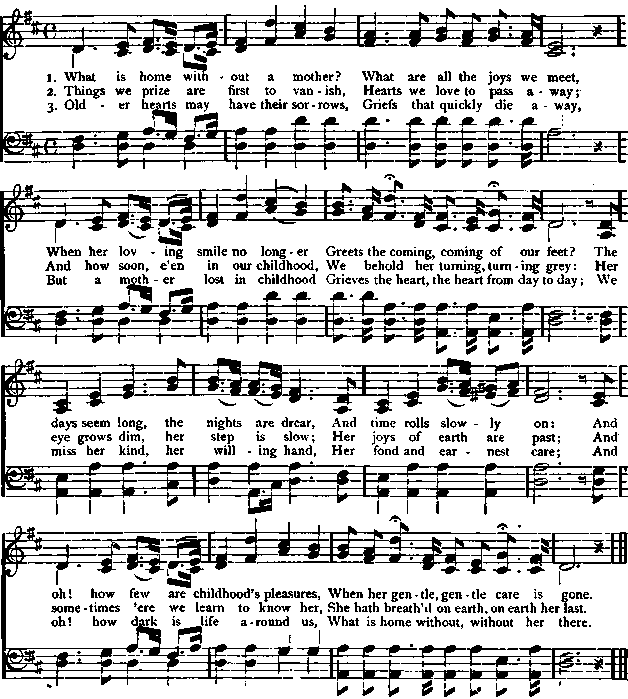Franklin Square Song Collection - online songbook
200 favorite songs and Hymns for Schools, Homes Lyrics & Sheet Music
| Share page | Visit Us On FB |
|
18 |
FRANKLIN-SQUARE SONG COLLECTION. |
||||
|
Religion has yoked all the arts and sciences to her chariot, and one of the first of them was poetry, which txpresses for us that to which logic and science cannot give utterance. Who does not thrill at the hymn of John Hemy Newman, " Lead, Kindly Light," written when he felt the impending change of his whole life, that was to alienate him from so many friends and cast so much suspicion on him ? Who does not feel the impulse of Bernard's " Jerusalem the Golden," or the Veni, Creator, written in the time of Charlemagne ? Such |
hymns are outside of dogma; they are common to all churches, Catholic and Protestant. But you say these are too old for the Sunday-school. Perhaps they are, yet they are far better for such use than the doggerel verses so often employed. Hymns, if they must be simple, must also be dignified ; it is absurd to set a great bearded fellow singing of his little hands and feet, of his fresh, clean face. It is no doubt necessary to teach children hymns they understand, but their future musi be looked to; thus it is well to teach them hymns they |
||||
|
WHAT IS HOME WITHOUT A MOTHER ?
Moderate. |
Alice Hawthorne. Per. Oliver Ditson 4 Co. |
||||
|
|
|||||
 |
|||||
|
|
|||||
|
do not wholly understand, that they may grow up with their ideas in them. Are not literary tastes formed in part by the selections in reading-books that we do not, as children, fully understand ? Like the choice of these prose selections should be that of Sunday-school hymns; especially so should it be for those who are just about entering on manhood and womanhood. They should be given that which will be of greatest use to them.
Helen sat down at the piano. Her time was perfect and she never blundered a note. She played well and |
woodenly, and had for her reward a certain wooden satisfaction in her own performance. The music she chose was good of its kind, but had more to do with the in-, strument than the feelings, was more dependent upon the execution than the expression. Bascombe yawned behind his handkerchief, and Wingfold gazed at the profile of the player, wondering how, with such fine features and complexion, with such a fine shaped and well-set head, her face should be so far short of interesting. It seemed a face that had no story.—Macdonald. |
||||